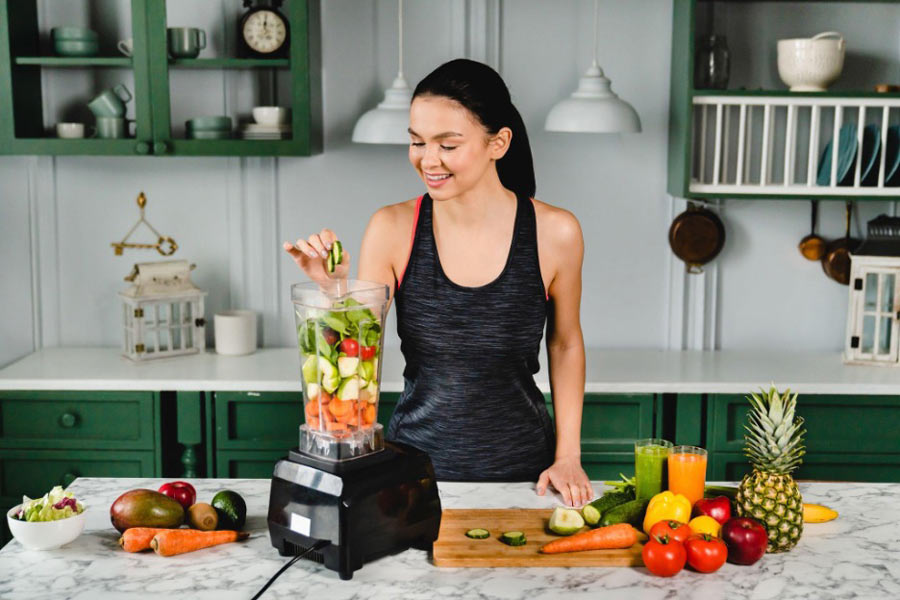Following on from last week’s health hacks email, we want to share with you Part Two on how to keep yourself and your loved ones healthy.
Here are some more of our essential tips we recommend for best health…
1. Consider UV Protection
Ultraviolet radiation (UV) is a form of electromagnetic radiation that comes from the sun or artificial sources such as tanning beds.
While we need a certain amount of UV exposure to help Vitamin D3 synthesis in the body, too much can be bad for the skin.
Excess exposure to UV radiation can cause premature aging of the skin and signs of sun damage include wrinkles, leathery skin, liver spots, and more.
Alongside wearing a natural sunscreen for protection, you may want to consider taking antioxidants for best support.
Antioxidants can defend and protect your skin against UV radiation. Taking antioxidants daily may also protect against the harmful effects of solar UV radiation.
Astaxanthin is one of the most powerful antioxidants and free-radical scavengers found anywhere in nature.
We recommend Good Health Naturally’s Astaxanthin as studies show it offers the following benefits:
- Antioxidant – Astaxanthin is one of the most powerful antioxidants, 1000x more powerful than Vitamin E at preventing oxidation and 550x more powerful against free radicals
- Cell Protection – It is able to protect both the inner layers of the cells as well as the outer layers
- Anti-Inflammatory – Its anti-inflammatory effects are shown in many studies
AstaXanthin with DHA™
2. Healthy Diet
There is a lot of conflicting advice about following a healthy diet. Modern-day food guidelines promote the importance of a ‘balanced’ approach and these often include ‘healthy’ whole grains such as bread, pasta, and cereals as the base of your diet. However, we do not recommend eating these foods. That’s because good health begins when you remove carbs from your diet.
Starchy carbohydrates break down into glucose (sugar) when absorbed into the bloodstream and this can elevate blood glucose levels in the body – a major cause of inflammation and one of the main contributing factors in many modern diseases. If you want to get healthy, you should avoid eating sugar and carbohydrates in your diet as much as possible.
We highly recommend following a ketogenic diet as this involves a low-carb, high-fat, and moderate protein approach. Studies show that a keto diet can significantly reduce body weight and that this can also help to reduce the risk of various chronic diseases.
A ketogenic diet generally consists of grass-fed meat such as beef, oily fish such as salmon or mackerel, plenty of green leafy vegetables such as broccoli and kale, dark coloured fruits such as berries, along with nuts, seeds, and legumes.
If you’re looking for healthy ketogenic recipes or new food inspiration, we recommend taking a look at the variety of healthy recipe ideas at www.reallyhealthyfoods.com
3. Sodium Bicarbonate
It may sound surprising that sodium bicarbonate – known as ordinary baking soda, could be a simple and cost-effective solution that helps to keep your body in an alkaline state, and this may potentially support long-term good health.
That’s because sodium bicarbonate is available and sold all over the world; it’s widely used in emergency rooms and intensive care wards in injectable forms; it is also sold as a common household substance that is used for 500 different things according to all of the books.
Asthma in children is often resistant to treatment with bronchodilators and systemic corticosteroids. Recent research suggests that administering sodium bicarbonate —along with Magnesium — in intravenous (IV) form can significantly improve pH and PCO2 in children with life-threatening conditions when nothing else can.
The only other substance about which we can say the same is magnesium chloride, which when injected will save a person during cardiac arrest and pull one out of a stroke if given soon enough.
When one takes both magnesium chloride combined with sodium bicarbonate, the effects, and force of one reinforces the actions and medicinal power of the other, as demonstrated in emergency room use. Sodium bicarbonate and Magnesium should therefore be in your diet to help with alkalising the body.
4. Keep Moving For Good Physical and Mental Health
Research shows that moving and exercising your body regularly can help to strengthen your heart, improve circulation and potentially improve overall wellness.
The good news is that even simple exercises such as walking can help you to improve your overall fitness and general health. Other great forms of exercise include swimming, jogging, cycling, and yoga.
Studies show that daily exercise can reduce symptoms of anxiety and depression. While walking daily may help you to lose weight. On average, walking for one mile burns 100 calories, so to lose weight the average person needs to walk 2000 steps in an average mile. Health experts recommend we should walk 10,000 steps a day if we want to lose 1 pound per week.
Walking can also reduce stress by increasing norepinephrine, a chemical that can moderate the brain’s stress response. This makes walking excellent for relief of mental tension. Cardiovascular exercise can also help with creating new brain cells, improving overall brain performance. Studies even suggest that being involved in a tough workout can increase levels of a brain-derived protein (BDNF) within the body and that this can help with decision-making, along with the general thinking and learning process.
What’s your favourite tip or most surprising health hack so far? As always, we love to hear your thoughts and feedback about anything in our newsletters so feel free to email in with your thoughts.





